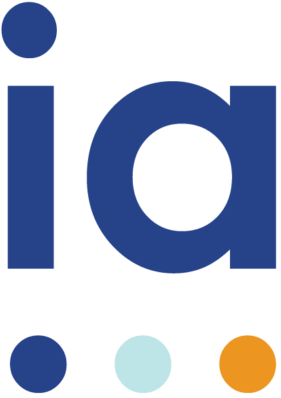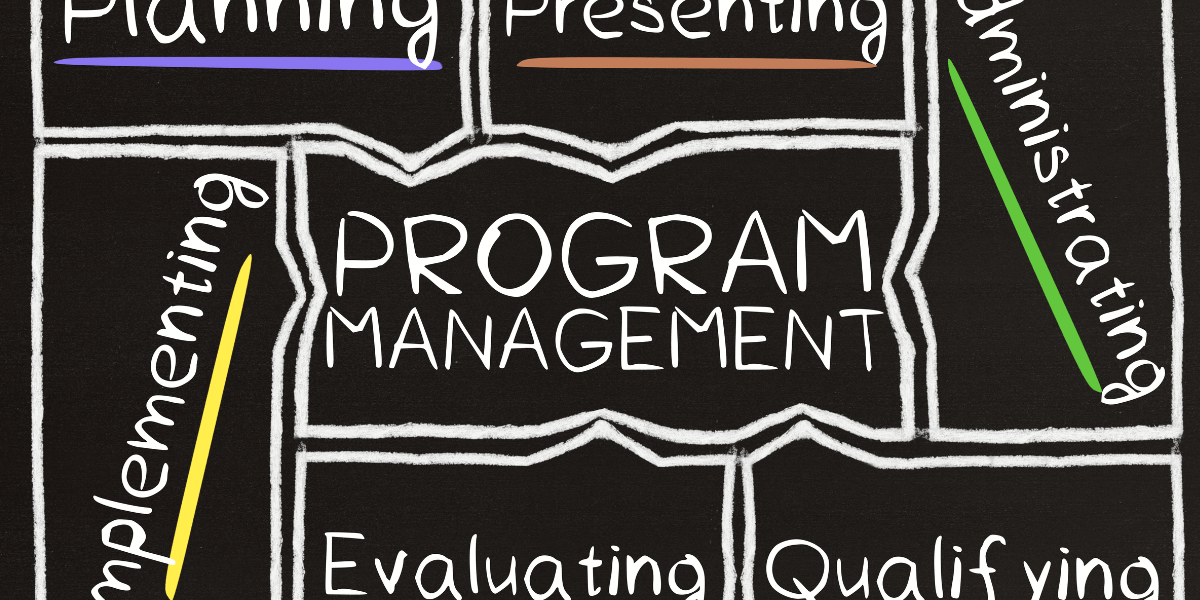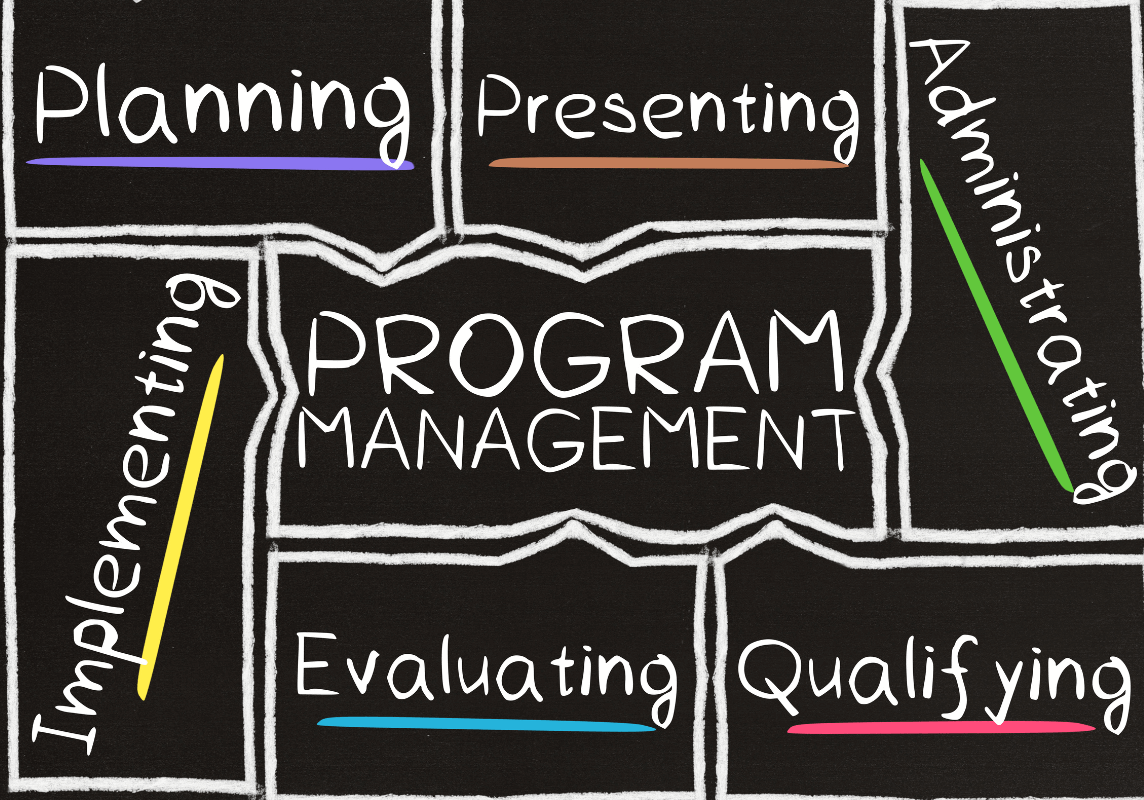Continuous Improvement, Strategic Services
In today’s fast-paced business environment, organizations are increasingly seeking ways to adapt and thrive amid rapid changes. As businesses face the pressures of digital/technology transformation, evolving market demands and a shifting workforce, HR departments are finding that their “secret weapon” is program management, which has emerged as a crucial yet often underappreciated and/or underutilized tool for driving effective business transformation. By leveraging program management principles, HR can orchestrate complex initiatives, align talent with strategic goals and foster a culture that supports long-term success.
What is program management?
At its core, program management is a structured approach to leading and coordinating a group of related projects with the goal of achieving specific objectives. This discipline is a key driver of successful transformations, yet it’s often misunderstood or misapplied, or perceived as a barrier to success. When we work with organizations, we will often start by asking if there is a PMO (program or project management office). We want to ensure we understand how they run programs so we can adapt to their methodology if needed, but we also want to assess the maturity of the function within the organization.
What we find is that program management often resides within IT departments with a heavy focus on technology transformation. This limits its potential to support transformation across the entire organization, particularly business transformations in which HR plays a key role. Whether or not a company has a centralized PMO function, HR would benefit from having program management resources, or at least building the skill set within the team. Yet, HR has often struggled to fully embrace program management principles when leading its own transformation initiatives.
Why the lag for HR to adopt program management?
In our work with organizations, we’ve seen several reasons why HR hasn’t fully embraced program management:
- Focus on projects, not programs: Many HR initiatives are seen as discrete projects, such as implementing a new performance management system. These projects may have clear goals, but they often lack the broader understanding of how they fit into a larger strategic transformation plan.
- Reactive vs. proactive: HR departments are often firefighting daily operational issues, leaving little time or energy to develop the strategic foresight needed for robust program management.
- Lack of dedicated resources: HR teams are often participating or leading projects off the sides of their desks. This lack of dedicated leadership and resources for program management functions makes it difficult to implement and sustain a structured approach.
- Skill gap: Traditional HR professionals may lack the specific skills and training required for effective program management, such as risk management, budget control and stakeholder communication.
I’ve seen this play out in real-time with a client. A technology transformation was already underway when we were engaged to help them build a program management framework to assist with the larger HR-owned business transformation. IT’s PMO had created its own program approach without engaging HR. HR leadership recognized the need for a broader transformation program that included HR and IT, and without the necessary skill sets they reached out for some help.
We worked with the team to identify the vision, strategic imperatives and outcomes for the program, which is key to ensure that the program team is all working in the same direction. We then identified all workstreams that made up the program. As we were building the program framework/governance, we needed to secure key roles within the program, including the executive sponsors, SteerCo, program manager and workstreams leads.
IA uses Smartsheet as a program tool, but you can use any tool to build dashboards to ensure all stakeholders have visibility to the program status; workstream project plans to track milestones; RAID logs to manage risks, actions, issues and decisions, as well as program and team health ratings. This helped align the program elements into a cohesive team moving toward common goals, as well as shifted the focus from solely a technology transformation to a true change in how the business worked. We also spent time training the organization on a new “way of working,” since this is not a familiar skill set for HR; it takes time to educate a new workstream lead on what it really means to be that lead. Please do not underestimate the change in this way of working.
How to build a strong HR PMO
To truly harness the power of program management, HR must move beyond a project-centric approach and embrace a program-driven mindset. If you’re ready to embrace program management and start building the capabilities within your team, here are a few suggested steps to take:
- Invest in training: Equip HR staff with the necessary program management skills, either through internal training programs or external certifications. We cannot stress enough how important it is to educate the organization on your program management approach. This is a “gotcha” in most failed transformations.
- Develop a dedicated program management team: Establish a dedicated program management function within HR, staffed with individuals skilled in project management methodologies. Adapt program management methodologies to meet your business needs; if you make it too rigorous, your teams may just not use it. We focus on building a program management framework/governance model that has controls but allows some flexibility at the workstream level.
- Align with the business PMO: Build strong relationships with the existing IT PMO to break down silos and ensure a coordinated approach to change management.
- Invest in technology: Utilize project management tools that facilitate collaboration, communication and data management.
For HR, it is more than just program management
A well-integrated program management function within HR can be a game-changer for business transformation. By providing strategic alignment, improving project execution, offering change-management expertise, facilitating data-driven decision-making and fostering effective communication and collaboration, program management enables HR to play a pivotal role in driving successful transformation initiatives.
When HR aligns its activities with the company’s overall transformation goals through program management, it ensures that every initiative contributes to the broader strategic vision. This prevents isolated projects that may not yield the desired results. Additionally, program management’s emphasis on structured planning, resource allocation, risk management and change management leads to smoother project execution and better communication, which results in reducing delays and minimizing disruptions.
Program managers, with their expertise in managing change, can effectively navigate the psychological challenges associated with transformation. By understanding employee resistance and developing strategies to foster buy-in, they help ensure a smoother transition to new processes and technologies. Moreover, the data-driven approach of program management empowers HR to track progress, measure success and make informed adjustments to the transformation program, ensuring it remains aligned with evolving needs.
HR’s program management superpower
Equipping HR with the power of program management is not a silver bullet, but it is a powerful tool to navigate the challenges and emerge stronger. By adopting a strategic, program-driven approach, HR can lead the way in shaping a future-proof organization, ensuring successful transformation efforts not just on paper, but in the hearts and minds of its workforce.
Does program management sound like something you want to implement but don’t know where to start? Join Kimberly Carroll and leaders from Iron Mountain, Ticketmaster and Hyatt for a session at the upcoming HR Technology Conference in Las Vegas, where you’ll learn from practitioners with market-leading organizations that have fully embraced the power of program management in their HR transformations.






